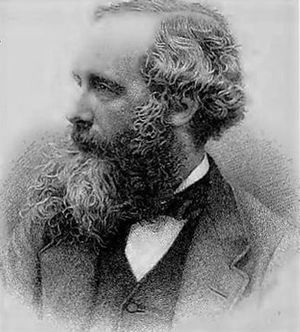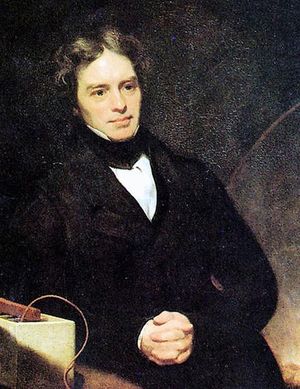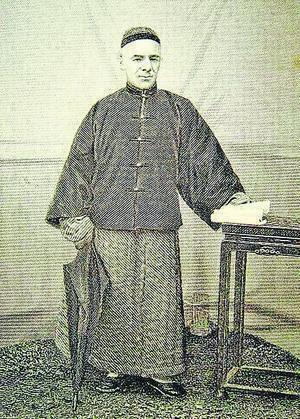Thirsting for God
One of the delights of my boyhood was to play in the woods and the nearby caves of an old ochre mine about a mile from where I lived in Long Ashton. The snag was the very steep hill, called Providence Lane, which had to be climbed first.
Near the top it levelled off, and here a benevolent local authority had fixed a wooden box to the wall, from which protruded a cast iron knob and beneath it a small spout. A twist to the left on the handle produced a clonking sound followed by a cool stream of deliciously refreshing water which issued from the spout.
You had to keep a grip on the spring-loaded handle while craning your neck around, so that the water went straight into your mouth. As an older boy, it became a thirst-quenching stop after a long return cycle ride to Clevedon.
I am sure this free supply was more beneficial than any of the drinks bought at the Miners’ Rest pub opposite! I do not recall ever being so thirsty or ever since enjoying drinking water so much.
A spiritual thirst
A decade or so later I experienced a different sort of thirst. I had already answered questions on most Bible chapters following the Young Sowers’ League scheme, but that’s not what made me thirsty. I had met several young believers with a serious faith, and had also been given some recently published books, like John Stott’s Basic Christianity and Ryle’s Five English Reformers. I became convicted about my sin and my somewhat sham Christianity, and God’s Spirit stirred me up and gave me a spiritual thirst – a desire to know him better and more deeply than ever before.
I put on my ex-army haversack, got on my motorbike, and headed for George’s second-hand bookshop in Bristol. Surely there must be some old books that would explain the meaning of all those seemingly difficult verses in the Bible!
I came away with four out of a six-volume commentary by Adam Clark1, the other two being missing. I also bought a French Bible and an old German Bible with comments. I gave the latter away just last year to a German student, who informed me that the comments were written by a rather liberal scholar – ah well!
Immense advantage
I subsequently found out that Dr Clarke was a learned Wesleyan commentator, and although ‘perfectionist’ in doctrine, Spurgeon recognised he had many interesting treasures to offer the Bible student, and wrote: ‘I have placed next to Gill in my library Adam Clarke, but as I have no desire to have my rest broken by wars among the authors, I have placed Doddridge between them …
‘Adam Clarke is the great annotator of our Wesleyan friends; and they have no reason to be ashamed of him, for he takes rank among the chief of expositors. His mind was evidently fascinated by the singularities of learning, and hencehis commentary is rather too much of an old curiosity shop, but it is filled with valuable rarities, such as none but a great man could have collected.
‘If you have a copy of Adam Clarke, and exercise discretion in reading it, you will derive immense advantage from it, for frequently by a sort of side light he brings out the meaning of the text in an astonishingly novel manner. I do not wonder that Adam Clarke still stands, notwithstanding his peculiarities, a prince among commentators’.
I have since inherited a nine-volume set of Matthew Henry’s timeless exposition, which is much more suitable for daily devotions.
Three thirsts
More than forty years on, I question whether I have since experienced such an intense thirst after God as I did then. The first chapter of Don Whitney’s Ten Questions to diagnose your spiritual health is entitled ‘Do you thirst for God?’ He differentiates three distinct types of spiritual thirst:
1. The thirst of the empty soul – the unbeliever tries to fill his inner emptiness with all sorts of pursuits and pleasures but, like Solomon, find that ‘all is vanity and grasping for the wind’ (Ecclesiastes 1:14).
2. The thirst of the dry soul – when a Christian becomes arid by imbibing too much unsatisfying worldliness. Or he may be experiencing what the Puritans called one of ‘God’s desertions’, or may simply be burnt out with overwork and stress.
3. The thirst of the satisfied soul – when we realise that communion with Christ can be so sweet, that we always want more of it.
Jonathan Edwards wrote: ‘Spiritual good is of a satisfying nature; and for that very reason, the soul that tastes, and knows its nature, will thirst after it, and a fullness of it, that it may be satisfied. And the more he experiences, and the more he knows this excellent, unparalleled, exquisite, and satisfying sweetness, the more earnestly he will hunger and thirst for more’.
Whitney points out that it is God who initiates spiritual thirst, and he also provides the means to satisfy it: ‘They feast in the abundance of your house; you give them drink from your river of delights’ (Psalm 36:8).
As a tonic to restore a healthy spiritual thirst, Whitney prescribes meditation, praying through scripture passages, and reading devotional classics. Suitable material includes Bunyan’s Pilgrim’s progress; Puritan authors such as Flavel and Watson; later authors like Spurgeon; and more recently, Tozer and Piper. We might further suggest Arthur Pink and Martyn Lloyd-Jones.
A free supply
Paradoxically, although by drinking from the spring of Christ’s living water we shall never thirst (John 4:14), yet the healthy believer should be thirsting continually for more of Christ. John Piper resolved this enigma by concluding that when we drink this living water, ‘it makes a spring in you. A spring satisfies thirst, not by removing the need you have for water, but by being there to give you water whenever you get thirsty’. The spring within is, of course, the indwelling Spirit of God (John 7:37-39).
We don’t have to climb the steep hill of Penance to get access to this spring of living water. Christ struggled up Calvary’s hill bearing his cross once for all to purchase a mains supply which is available by his provision right where we are. Paul, writing from his prison cell, calls it ‘the supply of the Spirit of Jesus Christ’ (Philippians 1:19).
The empty soul must indeed seek this water by repentance and faith (Acts 2:38) but the supply is freely provided – ‘Whoever wishes, let him take the free gift of the water of life’ (Revelation 22:17).
Perhaps it is time to check out our spiritual plumbing! Are we connecting with God in our meditation, prayer and reading? Are there any blockages from the lime-scale of worldly pursuits – like working excessive hours to maintain a certain lifestyle, or overindulging our favourite hobbies and sports?
Timothy was told to command his hearers not to put their hope in wealth, which is so uncertain, but in God (1 Timothy 6:17). Thank God that (as the text continues) he ‘richly provides us with everything for our enjoyment’.
He has made a fascinating world for us to explore and take pleasure in, wondering at the greatness of its Creator. If we can take Christ with us into all our activities, and know he will not be offended – if we can love and serve him and our brothers and sisters in Christ, abounding in good deeds – then we will indeed ‘take hold of the life that is truly life’ (1 Timothy 6:19).
The thirst of Christ on the cross
When God deserted Christ on the cross because he had become sin for us, Jesus cried, ‘I am thirsty’ (John 19:28). He would have been literally burning with thirst, but was he not also expressing his longing for his previously unbroken fellowship with the Father?
Erwin Lutzer points out in his excellent book Cries from the Cross that this cry was also in order that the Scripture would be fulfilled: ‘They put gall in my food and gave me vinegar for my thirst’ (Psalm 69:21). Lutzer says, ‘He was thirsty that he might redeem us from an eternal thirst’.
Matthew Henry comments (on John 19:28-29): ‘The torments of hell are represented by a violent thirst, in the complaint of the rich man who begged for a drop of water to cool his tongue. To that everlasting thirst we had all been condemned, if Christ had not suffered on the cross’.
Are you thirsty? If so, you can do no better than ‘stoop down and drink and live!’
I heard the voice of Jesus say,
‘Behold I freely give
The living water – thirsty one,
Stoop down and drink and live!’
I came to Jesus, and I drank
Of that life-giving stream;
My thirst was quenched, my soul revived,
And now I live in him.
Horatius Bonar (1808-89)
Footnote
1. Full text viewable at http://www.godrules.net/library/clarke/clarke.htm
Nigel T. Faithfull

















